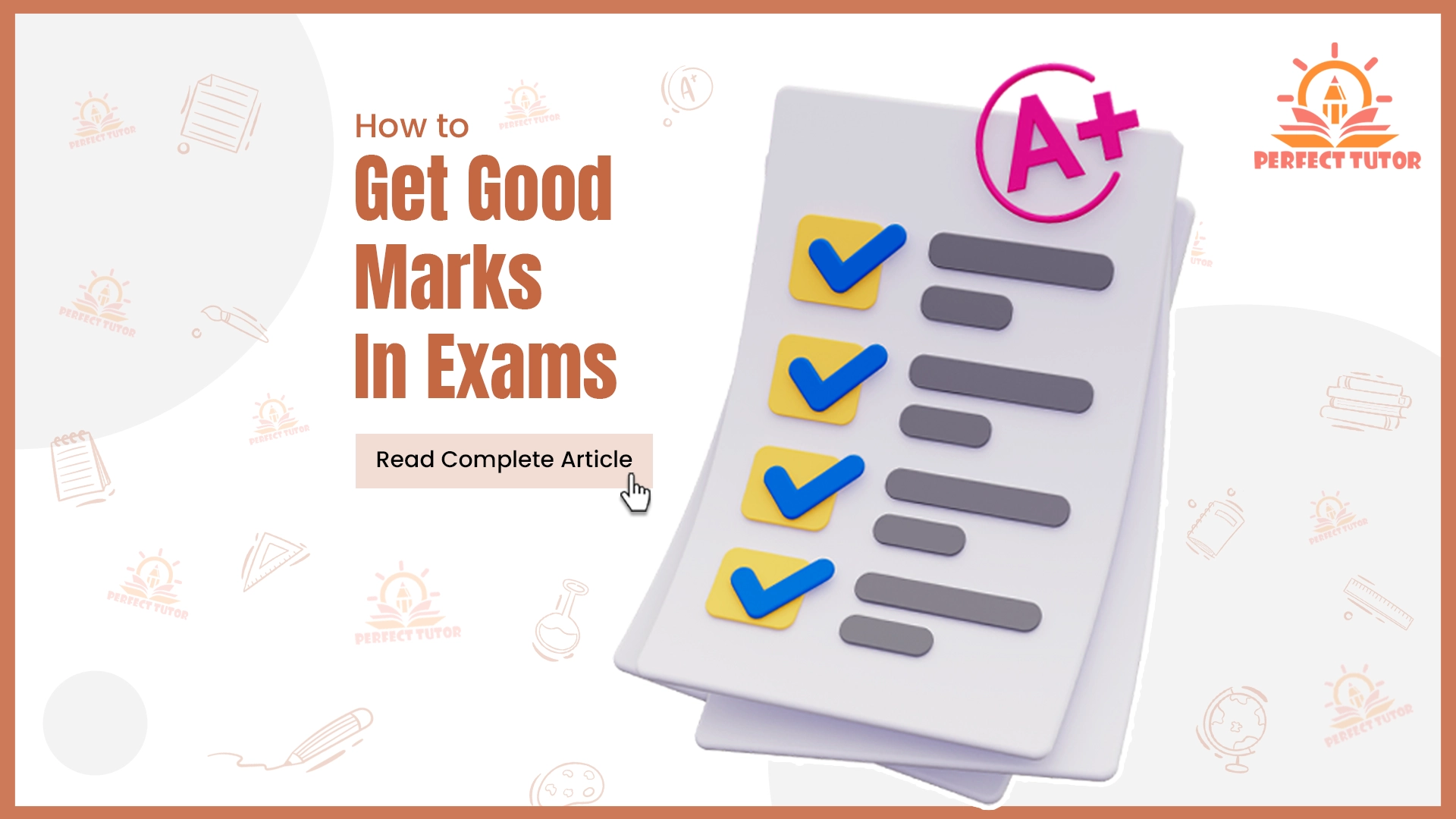How to get good marks in exams – A Complete Strategy
How to get good marks in exams. Many times, many of the students search on Google. While preparing for the exam, every student wants to score well. During this time, students learn the best and easiest way to learn. But finding the right way to get good marks in exams is not easy. In this article, you are given some tips to score well in the exam. If you follow this strategy in your studies, you will definitely be able to get good marks in exams. Good grades play a crucial role in your academic and professional career. The placement company requires a fantastic academic history.
1) Make sure your concept is clear
When you prepare and appear in the exam, make sure your concept is clear. If your concept is clear in the chapter, then I hope you have a good understanding of the topic. Some tips will be very helpful while studying.
Break it down
If you feel new concepts are overwhelming then break it down. You can break down complex concepts into three stages, basic, intermediate, and advanced. Now try to understand each part and write it down.
Apply the 80/20 Principle
If students want to study faster during exams, they should follow the 80/20 rule. The 80/20 rule is called the Pareto principle, which means that 80% of your efforts get you 20% of the results. Founder of Pareto, major Italian economist Vilfredo Pareto The Pareto principle states that 80% of your results come from 20% of your efforts. It means 80% of your study is from the book and 20% is from your knowledge and performance.
Behind the secret
Most people focus their time and effort on the 20% that make up their results. Shifting your focus to the 20% that makes up 80% of your results transforms your life. When you do this, you will be able to study faster and in less time.
People focus their time and effort on 80% and create 20% of their effects. Students can change their study pattern by focusing on the 20% that creates 80% of their results. During study time, you should follow this principle.
2) Memorize Notes Quickly for Exams
Memorizing notes is important for preparation at the time of exams. Many note-taking techniques help you collect information.
Write Good Notes
Digital Notes are the easiest way to keep all your notes in one place. If you keep notes on your mobile, tablet, or computer. Keep a separate folder for the notes of each subject. It would be easy to use. A good note strategy will be helpful to get good marks in exams.
Write notes in your own words
Don’t exactly copy words. It will not be helpful to remember your notes.
Follow some steps-
- Understand the topic deeply.
- Understand the Summary
- Summarize in your own words with the help of the diagram.
Use coloured pens while making notes
You can use different coloured pens to write different ideas. For example, blue pen is used for answers, black pen for headings, and red pen for diagrams.
Remember your notes for a long time if you use different coloured pens. This strategy will be very helpful when you write the answers in the examination hall.
3) Manage subject-wise timetable
Following a correct schedule is the key to the success of any student. You can utilize your time in studies as well as in other works. Decide your short and long-term goals for your studies. If you know what you want to achieve, then this strategy will be of great help to you.
Ask yourself what your long-term and short-term goals are. Always start with a short-term goal and break it down into smaller parts. Make sure you know how much you will spend on each goal, write it down, and brainstorm.
Make a list of all your subjects- Let's prioritize your subjects according to the exam date sheet.
Decide which subject you should study first.
1. Date Sheet Base
2. In how much time you will prepare a chapter on each topic?
3. Which subject do you like the most?
Balance your studies with fun and relaxation - while giving time to each subject. You also need to take out time for your relatives, friends and rest. This is because striking a healthy balance between your personal life and academic life is essential to your success in your studies. When you have very little time left before important exams, consider postponing or skipping your regular social or extra-curricular activities.
Schedule your study sessions - Fill out your schedule as soon as you have locked down your schedule and you know what you need to schedule. Note down which subject you are studying in each session. This will help you follow your schedule, create markers for material, and allow you to organize your textbooks and study materials before you start.
4) Solved Previous Year’s Question Paper
Every student is striving to achieve academic excellence and secure admission to prestigious universities by clearing entrance exams in this highly competitive world. Previous year questions are helpful for a student to know the exam pattern and boost their confidence in a subject.
• Previous year questions are helpful for a student to know the exam pattern and increase their confidence in a subject.
• It reveals a bit of the process by which question papers are prepared.
• It allows evaluation of the marks allocation of each question. It helps the students to formulate a precise strategy to excel in any exam.
• Previous year question papers are a valuable resource for anyone who wants thorough revision. This is one of the best techniques to revisit all the information you have studied from the books.
• You can easily estimate the probability of repetition of a question by noting down the frequently asked questions for the next exam.
5) Avoid social media platforms.
It can be tempting to ignore online classes and scroll through your social media instead. But if you want to learn effectively and avoid falling behind, you need to focus on your lecturer and avoid distractions. Here are some tips that will help you stay attentive and engaged during online classes.
Get off any social media platforms you may be using-
Once you close any social media platform you are using on your computer, trust us, you will not be tempted by them anymore. When it's time to log into that Zoom class, everything social or other non-study-related media should be turned off and your focus should be on your lecturer.
Reduce your phone use-
When you are not in a physical classroom with your teacher, it becomes very easy to unlock your smart phone and scroll through social media apps. Turning off notifications for all your apps might not be fast and simple, so how about reducing phone usage? There are many apps available that can restrict and track your smartphone usage.
Turn off your phone or put it away –
If you think cutting down on screen time still isn't going to be enough, turning off your phone can actually make a big difference. Next time you reach for it to unlock the screen, you have to stop and think about what you're about to do. If you are the kind of person who unlocks your phone every few minutes, then this tip is for you.However, if you want to go a step further, you can put your phone away from where you work and study – or have someone else in your household keep it until your class is over. ask to keep or assignment is done
Plan time for social media use –It may sound contradictory but giving yourself permission to use social media is actually a great way to take control.
6)Take a perfect diet
Exam season is always a busy season for everyone involved; Kids, parents, and even teachers! But the most worried might be the parents as extended hours of studying means poor diet and ultimately poor health for your kids!
Eat small, regular meals
Yes, the old-fashioned weight loss advice applies to exam preparation as well. Small meals will provide a steady supply of energy to a brain weary from exams. If you give your child plenty of food, he will experience a drop in energy and will also feel too alert to study for hours on end.
Eat a nutritious, balanced breakfast
While we recommend eating small, regular meals, breakfast is not on that list! Your budding expert has to endure an intense period of study and even writing the exam. Therefore, a combination of whole grains and protein will work well.
7) Getting proper sleep
College students are completing the school year by giving their final exams. The final weeks are a time characterized by high stress, a poor diet, and terrible sleeping habits. While college students typically struggle with chronic sleep deprivation, additional stress and anxiety related to exams can keep students up "all night" cramming for tests or not sleeping at all. By getting proper sleep, you can deal with exam stress and anxiety.
FAQ
Q.1 How to get 99 per cent in exams?
Ans. If you want to get 99% marks, make a proper timetable. Design your timetable result oriented, Solved more than 100 previous year question papers, and try to study. one night reader.
Q.2 Why do I score low in exams?
Ans If your score is low, there may be many reasons.
1. You did not do hard work on the exam.
2. You did hard work, but your answer did not reflect the examiner's point of view.
3. Poor writing makes the examiner unable to under



 +91 8700847275
+91 8700847275
 +1 8009616567
+1 8009616567